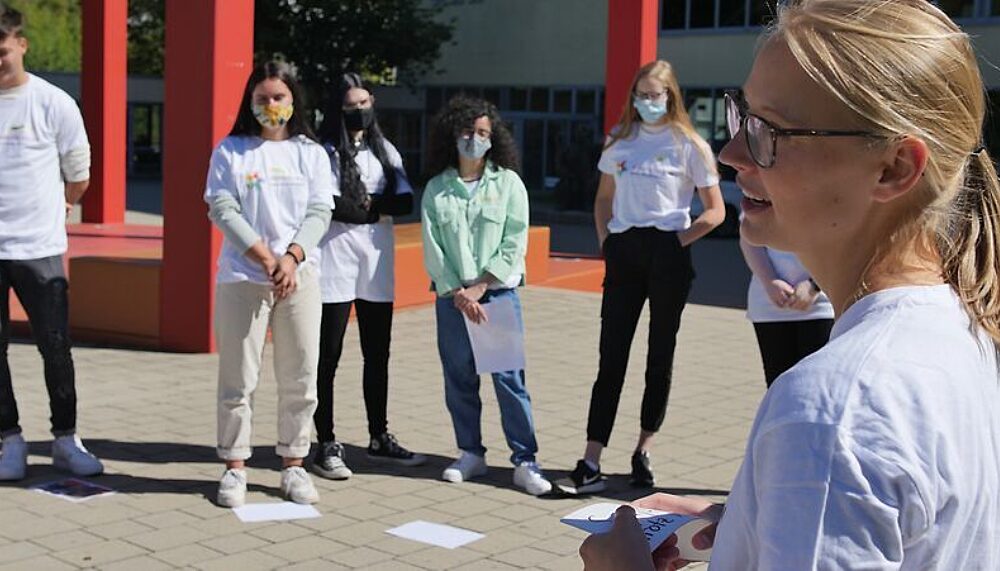BLOG POST | 28 Oct 2025
Europe must lead on Women, Peace and Security

25 years since its adoption, Chris Coulter urges governments and multilateral institutions to redouble efforts to mainstream the WPS Agenda.
By Chris Coulter
This article was originally published on 28 October 2025 in the EUobserver as an opinion piece: https://euobserver.com/eu-and-...
The United Nations on Security Council Resolution 1325 on Women, Peace and Security (WPS) was adopted 25 years ago — its anniversary falls on 31 October. It was a landmark commitment to include women meaningfully in conflict prevention and peace-building, but too often, it has fallen short.
Having helped draft Resolution 1325 all those years ago, I know firsthand we’ve spent decades passing resolutions, producing national action plans, and signing pledges. What has proven far more challenging is turning them into sustained political action. The time for statements has passed; now we must do the actual work.
That is no simple task. Around the world, we are witnessing a surge in authoritarianism and a backlash against gender equality. I will be speaking in New York at a time when many women cannot — some too afraid for their safety, others unable to travel due to restrictive immigration policies.
And here in Europe, we are not immune. Across the continent, several governments are either openly joining the backlash or quietly retreating from their previous commitments.
Meanwhile, we are seeing a shift from comprehensive peace agreements to short-term ceasefire deals that are often fragile and easily broken, and women’s representation in official peace negotiations remains staggeringly low.
This reveals that inclusion will not come just from the top down. Governments and multilateral institutions, including the EU, must redouble efforts to mainstream the WPS agenda.
But that alone is not enough. Real progress depends on supporting the women already doing the work on the ground: those who create space when official negotiations stall, who mediate in their own countries, and fill in the gaps when short-term deals don’t address the root causes of conflict.
Real progress depends on supporting the women already doing the work on the ground: those who create space when official negotiations stall, who mediate in their own countries, and fill in the gaps when short-term deals don’t address the root causes of conflict.
Hard facts, not 'nice-to-have'
We must also confront the myth that including women is merely a “nice-to-have.” The evidence says otherwise. Research shows that peace agreements are 20 percent more likely to last at least two years and 35 percent more likely to last fifteen years when women are involved in negotiations.
Despite this, as of 2023, women made up just 9.6 percent of negotiators, 13.7 percent of mediators, and 26.6 percent of signatories to peace agreements.
In high-level talks, such as efforts to secure a ceasefire in Gaza, women are absent. Only in the Colombian peace process, where I served as an advisor, did we see significant female participation.
Excluding Colombia, that 26.6 percent drops to just 1.5 percent.
In this era of rising conflict and resurgent authoritarianism, women are not being asked to join the table more often — they are being asked less. Europe cannot afford to be complacent about that trend.
Because I have seen what happens when women do participate. In our work worldwide, women have mediated prisoner exchanges, negotiated local ceasefires, and created space for conflict transformation when conflict parties were at war or in a stalemate.
Somalia, and the EU
In Somalia, for example, women have helped transform disputes over contested territory into peaceful settlements. These actions might not always make international headlines, but they are the foundation of sustainable peace.
If Europe wants to remain a credible global actor for peace, it must ensure that its foreign and security policies reflect these lessons.
The EU’s recent Strategic Compass and its commitments under the WPS agenda provide a strong framework — but these commitments will ring hollow unless they are matched by resources, accountability and political will.
That means ensuring women are represented not only at the highest levels of negotiation and mediation, but also in ongoing dialogue with local women’s organisations and peace-builders who understand the realities on the ground. It means integrating the WPS agenda into every stage of crisis response, from early warning systems to post-conflict recovery.
It also means providing flexible, direct funding to women’s groups working in fragile and conflict-affected settings—without the bureaucratic barriers that too often slow or exclude them.
We should also expect more from our governments. EU member states that have adopted national action plans must implement them fully; those that have let their plans lapse must renew and resource them. Europe’s leadership on peace and democracy cannot be credible if it ignores gender equality—whether at the negotiating table or on the ground.
Particularly as conflicts deepen and climate change accelerates instability, the need for inclusive peacebuilding has never been more urgent. The Women, Peace, and Security agenda is not a nice-to-have; it is a necessity.
When women are included, we not only uphold our principles but also achieve tangible results. By acting together, from the bottom to the top, we can collectively build towards more lasting peace.
Media contact
You can reach the press team at:
+49 (0) 177 7052758
email hidden; JavaScript is required

